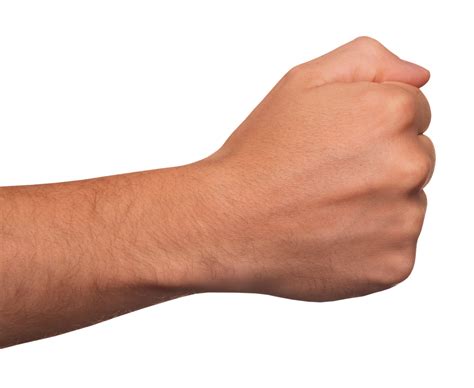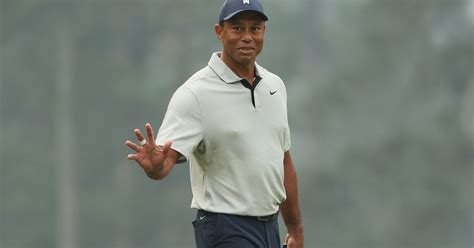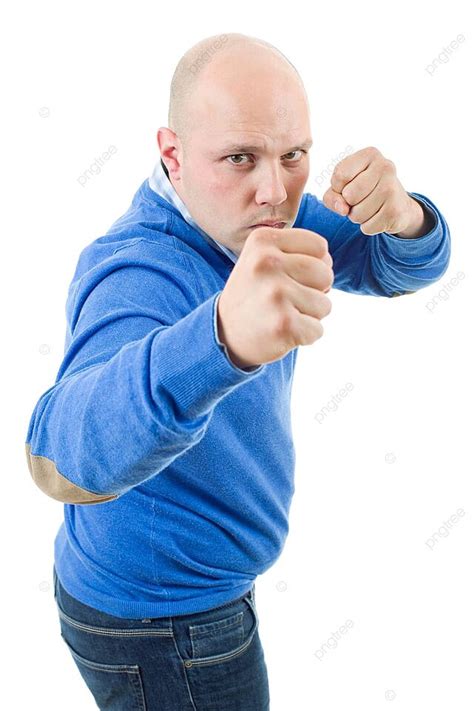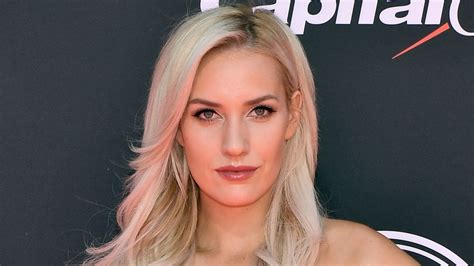
Coope Maxwell, a professional Super Smash Bros. Melee player, has issued a controversial and violent threat towards fellow competitor Josh “Panda” Bar, igniting a firestorm of criticism and prompting widespread condemnation from the Super Smash Bros. community. Maxwell’s explicit statement, “I’ll stick my fist so far down his throat, he won’t be able to talk for a week,” made on a livestream, has been interpreted as a physical threat and has raised serious concerns about the safety and professionalism within the competitive gaming scene.
The threat stems from an ongoing dispute between Maxwell and Bar, rooted in accusations of collusion and unsportsmanlike conduct during recent tournaments. While the specifics of their disagreements remain somewhat opaque, Maxwell’s escalation to overt threats has crossed a line, triggering immediate backlash from players, organizations, and fans alike. The incident underscores the challenges of maintaining a healthy and respectful environment within the often-passionate and high-stakes world of esports.
The competitive Super Smash Bros. Melee community is reeling from Maxwell’s inflammatory remarks directed at Bar. The severity of the threat, combined with its public nature, has sparked a debate about the appropriate response and the need for stronger accountability measures within the scene. Organizations are now under pressure to take decisive action, potentially including suspensions or bans, to send a clear message that such behavior will not be tolerated.
The incident is not isolated; it highlights a broader issue of online toxicity and the potential for heated rivalries to spill over into personal threats and harassment. The community is now grappling with the question of how to foster a more positive and supportive environment while maintaining the competitive intensity that defines the game.
Maxwell’s statement, made during a live broadcast, quickly spread across social media platforms, amplifying the controversy and drawing attention from both inside and outside the Super Smash Bros. community. Many viewers immediately condemned the threat, calling for Maxwell to apologize and face consequences for his actions. Others expressed concern about the potential for violence and the impact of such behavior on the overall image of the competitive gaming scene.
The nature of Maxwell’s statement has also raised legal questions, with some legal experts suggesting that it could potentially be interpreted as a form of harassment or even a credible threat of violence, depending on the specific legal jurisdiction. While it remains unclear whether Bar intends to pursue legal action, the incident serves as a reminder that online statements can have real-world consequences.
The incident has also put a spotlight on the role of streaming platforms and tournament organizers in moderating player behavior and enforcing codes of conduct. Many argue that these entities have a responsibility to create a safe and respectful environment for all participants, and that they should be proactive in addressing instances of toxicity and harassment. The debate is likely to lead to increased scrutiny of player behavior and potentially stricter enforcement of existing rules and regulations.
The Super Smash Bros. community is known for its passion and dedication to the game, but it has also faced challenges related to toxicity and harassment in the past. This latest incident underscores the need for ongoing efforts to promote sportsmanship, respect, and ethical behavior within the scene. Many players and organizations are now calling for increased education and awareness programs to help prevent similar incidents from occurring in the future.
Further Context and Details:
The Super Smash Bros. Melee scene, a vibrant and passionate community, has long been characterized by intense rivalries and spirited competition. However, these rivalries sometimes spill over into personal animosity and, in rare cases, threats and harassment. The incident involving Maxwell and Bar represents a significant escalation of tensions and highlights the need for greater accountability within the community.
Maxwell’s threat against Bar, while shocking in its explicitness, is not entirely without precedent. The competitive gaming scene has struggled with issues of toxicity and online harassment for years, and Super Smash Bros. Melee is not immune to these challenges. The anonymity afforded by online platforms can embolden individuals to make statements they might not otherwise make in person, and the pressure of competition can sometimes lead to outbursts of anger and frustration.
However, the severity of Maxwell’s threat, combined with its public nature, has set it apart from typical online banter. The statement was not simply an expression of frustration or disappointment; it was a direct and unambiguous threat of physical violence. This has led many to believe that it warrants a stronger response than a simple apology or warning.
The incident has also raised questions about the role of mental health in competitive gaming. The pressure to perform well, the long hours of practice, and the constant scrutiny of fans can take a toll on players’ mental well-being. It is possible that stress and anxiety contributed to Maxwell’s outburst, although this does not excuse his behavior.
Many in the community are calling for greater emphasis on mental health support for players, as well as increased education and awareness about the dangers of online toxicity and harassment. Some organizations are beginning to offer counseling services and other resources to help players cope with the stresses of competitive gaming.
The response to Maxwell’s threat has been swift and widespread. Many players and organizations have publicly condemned his behavior and called for him to be held accountable. Some have even suggested that he should be banned from competing in future tournaments.
The incident has also prompted a broader discussion about the need for clearer and more comprehensive codes of conduct within the Super Smash Bros. Melee scene. Many argue that the existing rules are too vague and do not adequately address issues of toxicity and harassment. They are calling for the creation of a more robust set of guidelines that clearly define acceptable behavior and outline the consequences for violations.
The incident involving Maxwell and Bar is a reminder that the competitive gaming scene is not immune to the problems of the wider world. Online toxicity, harassment, and threats of violence are all too common in online spaces, and the Super Smash Bros. Melee community must take steps to address these issues proactively.
The community must also be willing to hold individuals accountable for their actions, regardless of their skill level or popularity. The incident involving Maxwell and Bar should serve as a wake-up call, prompting the community to work together to create a safer and more respectful environment for all.
Impact on Panda Bar:
While Josh “Panda” Bar has not issued an extensive public statement regarding the threat, sources close to him suggest that he is understandably shaken by the incident. The nature of the threat, perceived as a direct and credible threat of physical violence, has caused significant distress. It’s important to acknowledge the emotional toll such incidents can have on the targeted individual. Bar, known for his contributions to the Melee community, now faces the added burden of navigating the aftermath of a public threat, which can be emotionally taxing and create a sense of unease.
The community’s response to the threat is vital for supporting Bar during this challenging time. Demonstrations of solidarity, expressions of concern, and assurances of safety can help him feel more secure and supported. Furthermore, responsible reporting and respectful dialogue about the incident are crucial to avoiding further harm and promoting a healthy environment within the Melee community.
Potential Legal Ramifications:
The potential legal ramifications of Maxwell’s threat are complex and depend on several factors, including the specific jurisdiction, the intent behind the statement, and whether Bar feels threatened or harassed. Legal experts suggest that Maxwell’s words could potentially constitute harassment, assault, or even a terroristic threat, depending on the circumstances.
Harassment typically involves repeated or persistent actions that cause emotional distress or fear. In this case, Maxwell’s public threat could be considered harassment if it created a hostile environment for Bar or caused him to fear for his safety. Assault, in a legal context, involves an intentional act that creates a reasonable apprehension of imminent harm. While Maxwell did not physically attack Bar, his threat could be interpreted as an attempt to instill fear of imminent harm.
Terroristic threats, in some jurisdictions, involve communicating a threat to commit a violent act with the intent to intimidate or cause fear. The specific elements required to prove a terroristic threat vary depending on the law, but Maxwell’s statement could potentially meet the criteria in some cases.
It is important to note that legal action is ultimately Bar’s decision. He has the right to pursue legal remedies if he believes that Maxwell’s threat has caused him harm or violated his rights. Even if Bar chooses not to pursue legal action, the incident could still have consequences for Maxwell, such as disciplinary action from tournament organizers or streaming platforms.
The Role of Tournament Organizers and Streaming Platforms:
Tournament organizers and streaming platforms play a crucial role in maintaining a safe and respectful environment within the Super Smash Bros. Melee community. They have the power to set standards of conduct, enforce rules, and take action against individuals who violate those rules.
In the wake of the Maxwell-Bar incident, many are calling on tournament organizers and streaming platforms to take a more proactive approach to addressing toxicity and harassment. This could include implementing stricter codes of conduct, providing training on responsible online behavior, and taking swift and decisive action against individuals who engage in harmful behavior.
Tournament organizers have the authority to ban players from competing in their events, which can have a significant impact on a player’s career. Streaming platforms, such as Twitch and YouTube, have the power to suspend or ban users who violate their terms of service.
Many believe that tournament organizers and streaming platforms should work together to create a unified approach to addressing toxicity and harassment. This could involve sharing information about individuals who have been banned from one platform or event and coordinating efforts to ensure that they are not able to participate in other events or platforms.
Community Response and Calls for Action:
The Super Smash Bros. Melee community has responded to the Maxwell-Bar incident with a mixture of shock, anger, and disappointment. Many players, organizations, and fans have publicly condemned Maxwell’s behavior and called for him to be held accountable.
A common sentiment within the community is that Maxwell’s threat is not representative of the values of the Super Smash Bros. Melee scene. The community prides itself on its passion, dedication, and sportsmanship, and Maxwell’s actions are seen as a betrayal of those values.
Many are calling for increased education and awareness about the dangers of online toxicity and harassment. Some are suggesting that workshops or training sessions should be offered to players to help them understand the impact of their words and actions.
Others are calling for a greater emphasis on mental health support for players. The pressures of competitive gaming can be intense, and it is important to provide players with the resources they need to cope with stress and anxiety.
The Super Smash Bros. Melee community is a strong and resilient one, and it is capable of overcoming the challenges posed by incidents like the Maxwell-Bar threat. By working together to promote sportsmanship, respect, and ethical behavior, the community can create a safer and more welcoming environment for all.
The Future of Competitive Melee:
The Maxwell-Bar incident raises broader questions about the future of competitive Melee and the steps needed to foster a healthier environment for all participants. The community is at a crossroads, facing the challenge of balancing intense competition with the need for respect and sportsmanship.
Moving forward, a multi-pronged approach is essential. This includes stricter enforcement of existing rules, enhanced education and awareness programs, and greater emphasis on mental health support.
Tournament organizers and streaming platforms must take a more proactive role in setting standards of conduct and holding individuals accountable for their actions. Players themselves must be willing to challenge toxic behavior and create a culture of respect and sportsmanship.
The incident serves as a reminder that the competitive gaming scene is not immune to the problems of the wider world. However, by working together, the Super Smash Bros. Melee community can create a brighter future for the game and its players.
FAQ:
1. What exactly did Coope Maxwell say to Josh “Panda” Bar?
Coope Maxwell stated, “I’ll stick my fist so far down his throat, he won’t be able to talk for a week.” This statement was made publicly during a livestream and is widely considered a threat of physical violence.
2. What prompted Coope Maxwell to make this threat?
The threat stems from an ongoing dispute between Maxwell and Bar, reportedly related to accusations of collusion and unsportsmanlike conduct during recent Super Smash Bros. Melee tournaments. The specific details of their disagreements remain somewhat unclear, but the tension escalated to a point where Maxwell made the threatening statement.
3. What consequences could Coope Maxwell face for his actions?
Maxwell could face several consequences. He could be suspended or banned from participating in future Super Smash Bros. Melee tournaments by tournament organizers. Streaming platforms like Twitch or YouTube could also suspend or ban his accounts. Additionally, he could potentially face legal repercussions if Josh “Panda” Bar chooses to pursue legal action, as the statement could be interpreted as harassment or a threat of violence.
4. What is the Super Smash Bros. Melee community doing in response to this incident?
The Super Smash Bros. Melee community has largely condemned Maxwell’s behavior. Many players and organizations have publicly criticized his actions and called for him to be held accountable. There are also discussions about implementing stricter codes of conduct and promoting better sportsmanship within the community.
5. What can be done to prevent similar incidents from happening in the future?
To prevent future incidents, several steps can be taken:
- Stronger Codes of Conduct: Implementing clearer and more comprehensive codes of conduct for tournaments and streaming platforms.
- Enforcement: Strictly enforcing existing rules and codes of conduct, with clear consequences for violations.
- Education and Awareness: Providing education and awareness programs about online toxicity, harassment, and the importance of respectful behavior.
- Mental Health Support: Offering mental health resources and support for players to help them cope with the pressures of competitive gaming.
- Community Involvement: Encouraging community members to actively challenge toxic behavior and promote a culture of respect and sportsmanship.
The collective effort by tournament organizers, streaming platforms, players, and the broader community is essential to creating a safer and more positive environment for everyone involved.









